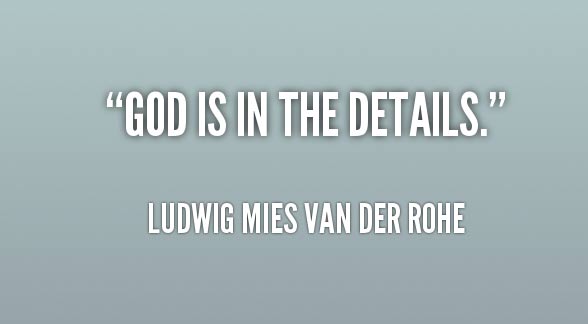Is God in the “Digital” Details?
Nothing is what it seems anymore. The digital revolution has made it possible to falsify or misrepresent just about anything. Sure, talented photographers and analog artists have been retouching headshots and mucking around with images for many years but it’s gotten to the point that absolutely nothing is real anymore.
I read an email from a Chinese software developer that was promoting a new image enhancement app. The photos showed a young woman strolling down a city street before and after they modified the image. At first, I didn’t notice anything. I know what image filters are available on Instagram and other photo apps, but this one improved the image by stretching the woman’s legs from her hips to her toes!
Really? Someone really thinks there is a big enough market for a “leg lengthening” application? This is not a high end fashion model type major makeover but a casual photo that needs a little fakery to satisfy one’s self image.
But let me let you in on a little music production reality. Engineers are digitally “retouching” individual tracks all the time. You may have heard the term “autotune”. It’s a software program that can detect and correct pitch errors in a musical performance. It’s ubiquitous in the pop music world but it’s also used in classical and jazz productions as well.
It crossed my mind because I noticed that some of the tracks on the hard drives associated with the Christmas record that I’ve been working on were labeled “tuned”. This seemed surprising since the performers are the best of the best studio players in Los Angeles. These are the guys that play in the Los Angeles Philharmonic and moonlight as session musicians playing music for television and motion pictures. You would think that they wouldn’t need to be “tuned”.
It turns out that there’s a lot more manipulations going on than you might imagine. It started with slight pitch adjustments to a lead vocal. Then it spread to the background harmonies and guitar parts. These days individual drums tracks are tuned, pushed or pulled in time to match the mathematically accurate tempo grid and even replaced with “better” sounding samples. Nothing you hear on a commercial pop record was actually recorded from a microphone or a direct box and left unaltered.
I spoke to an engineer friend that worked on as Robin Thicke track recently. He told me that every track was subjected to intense “detailing” and modification…they tuned, adjusted, replaced, and equalized every track in the entire track. Does this level of “retouching” result in better sound music? Are today’s recordings better than the stuff the Beatles and Led Zeppelin did back in the days of 4-track analog machines? I don’t think so.
The productions that the record industry produces and releases these days lack something. Of course, there are honest and simple recordings being released but they are in the minority. When I listen to a Joni Mitchell or James Taylor track, I get a connection that I don’t get with John Mayer or Beyonce. My recording of Jennifer Warnes or John Gorka didn’t get autotuned. These singers actually sang the vocals (usually in a couple of takes) at a master quality.
I think we need to appreciate the power of digital technology but recognize that just because you have a tool doesn’t mean you have to use it on everything.


Not Always Dr, Mark. You and others who truly understand the power of emotional music know the micro tonal pitch and rhythm departures from ideal often enhance the music’s impact. For example, a perfectly sonorous string section sound is really quite vanilla upon repeated listenings.
You’re absolutely right…thank!
The manipulation of music which is so widespread is evident in the numerous instances when a musician is caught lipsyncing instead of actually performing. Some instances might be justified when they need to reach a large audience at a public event. I think that many others reflect the fact that what the public has heard from the albums/videos/performances actually has little relation to what actually originally came out of the performers mouth 🙂
Yeah. The imperfections are what make it human. The humanity is what makes it involving. There is a saying in Brazil: “It doesn’t smell good, it doesn’t smell bad, it just doesn’t smell.” Fortunately there is a lifetime worth of music that hasn’t been lobotomized in this fashion, and the record companies are too cheap to spend the money to **** it up.
I agree.
Never heard of auto tune until I saw an article about the new album by Tony Bennett and Lady Gaga. Mr. Bennett insisted on no auto tune. I had no idea how many pop artists used this tool.
Good for him! And I believe Lady Gaga can actually sing to his standards…
In the end we won’t even need musicians – lots of ‘material’ out there for the engineers to ‘retouch’ and ‘finetune’ and sample.
Makes music a lot cheaper ;-(
Last sentence should have been:
…’music production…’ – with stress on ‘production’.
Sorry could not correct the post directly.
I haven’t even talked about the use of machines in the creation of commercial music.